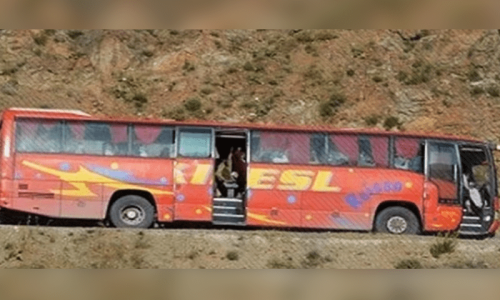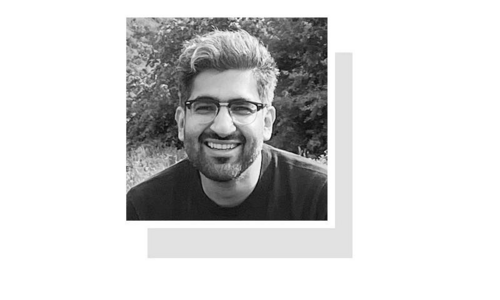WASHINGTON: Pakistan ruled out sharing its nuclear weapons with Saudi Arabia, insisting Thursday that the atomic arsenal would continue serving solely for the country's national defence even as world powers and Iran near a possible nuclear agreement.
Closing a wide-ranging trip to Washington, Foreign Secretary Aizaz Ahmad Chaudhry angrily rejected speculation that his country could sell or transfer nuclear arms or advanced technology as "unfounded and baseless".
Pakistan has long been among the world's greatest proliferation threats, having shared weapons technology with Iran, Libya and North Korea. And American and other intelligence services have been taking seriously the threat of Saudi Arabia or other Arab countries potentially seeking the Muslim country's help in matching Iran's nuclear capabilities, even if the US says there is no evidence of such action right now.
"Pakistan is not talking to Saudi Arabia on nuclear issues, period," Chaudhry insisted. The arsenal, believed to be in excess of 100 weapons, is focused only on Pakistan's threat perception from "the East" Chaudhry said, a clear reference to long-standing rival and fellow nuclear power India.
Chaudhry said his country has significantly cracked down in recent years on proliferation, improving its export controls and providing UN nuclear monitors with all necessary information. Pakistan also won't allow any weapons to reach terrorists, he said.
Pakistan detonated its first nuclear weapons in 1998, shortly after India did. At the same time, the man regarded as the father of Pakistan's nuclear program, A Q Khan, was shopping advanced technology to many of the world's most distrusted governments.
He sold centrifuges for enriching bomb-making material to the Iranians, Libyans and North Koreans, and also shared designs for fitting warheads on ballistic missiles. He was forced into retirement in 2001. Concerns now centre on how the governments of the Middle East will respond if the US and other governments clinch a nuclear deal with Iran by the end of the month.
Such questions inevitably lead to Pakistan, the only Muslim country in the nuclear club and one with historically close ties to Saudi Arabia. Saudi officials, for their part, have repeatedly refused to rule out any steps to protect their country, saying they will not negotiate their faith or their security.
Foreign secretary's US visit
Aizaz Chaudhry during his visit to Washington DC attended a meeting of the Working Group on Strategic Security, Stability and Non-proliferation (SSS&NP) and held meetings with several senior diplomatic and military officials for US-Pakistan strategic dialogue.
The US State Department said Wednesday the agenda included "international efforts to enhance nuclear security" as well as non-proliferation and export controls.
It described the discussions as “productive” and said the governments would work together to prevent the spread of weapons of mass destruction. Speaking to reporters, Chaudhry praised the progress thus far in the Iran nuclear talks.
He told reporters that a diplomatic success would have significant economic benefits for Pakistan, allowing it to complete a long-sought gas pipeline project with its neighbor to the west.
During a meeting at the Pentagon with US Defence Undersecretary Christine Wormuth, both sides discussed a wide range of issues related to bilateral defence cooperation. Continuing high level exchanges and regular dialogues between defence communities of Pakistan and the US was agreed upon and Chaudhry appreciated the United States' support in assisting Pakistan in its counter-terrorism campaign.
Both sides also reviewed developments in the region and agreed on the need to further strengthen mutually beneficial security cooperation.
Continuing his busy schedule in Washington DC, the foreign secretary met with the US Undersecretary for Treasury Adam J Szubin. Undersecretary Szubin oversees the US policy on economic sanctions and countering terrorist financing.
Chaudhry briefed Undersecretary Szubin on various legislative and administrative steps taken by the government in the domain of anti-money laundering and countering terrorist financing. Sharing the key points of the Prime Minister Nawaz Sharif's National Action Plan (NAP), the foreign secretary highlighted the various implementation measures, in particular, the steps taken towards countering financing for terrorism.
Undersecretary Szubin praised Pakistan's dedication and sacrifices in the fight against terrorism and noted the significant success achieved by the ongoing military operations in Federally Administered Tribal Areas (Fata).
Undersecretary Szubin also appreciated the positive steps taken by the Pakistani government to meet international financial standards to monitor and interdict suspicious transactions.
Reviewing their collaboration in combating terrorism at the bilateral and multilateral levels, the two sides agreed to further intensify their cooperation.
Chaudhry also met Deputy Secretary of State, Tony Blinken in the Department of State today. The Foreign Secretary and the Deputy Secretary reviewed the state of bilateral relationship and expressed satisfaction over its growing momentum and positive trajectory.
The foreign minister apprised the deputy secretary on Pakistan’s effort to address the threat of terrorism. He underscored that the military operation, Zarb-i-Azb, was progressing well. He thanked the US for the cooperation extended in the post-operation relief and rehabilitation of temporarily dislocated peoples. The foreign secretary reaffirmed Pakistan’s commitment to a peaceful, stable and united Afghanistan.
Blinken lauded Prime Minister Nawaz Sharif's efforts to reach out to Pakistan’s neighbours and hoped that his initiatives would help bring prosperity to the people of the region. He also noted the improved mutual trust and positive relations between Pakistan and Afghanistan.
Separately, Chaudhry also held meeting with Dan Feldman, Special Representative on Afghanistan and Pakistan (SRAP). Both sides took stock of the recent developments in the region in wake of the visit of the SRAP to Pakistan last month.










































